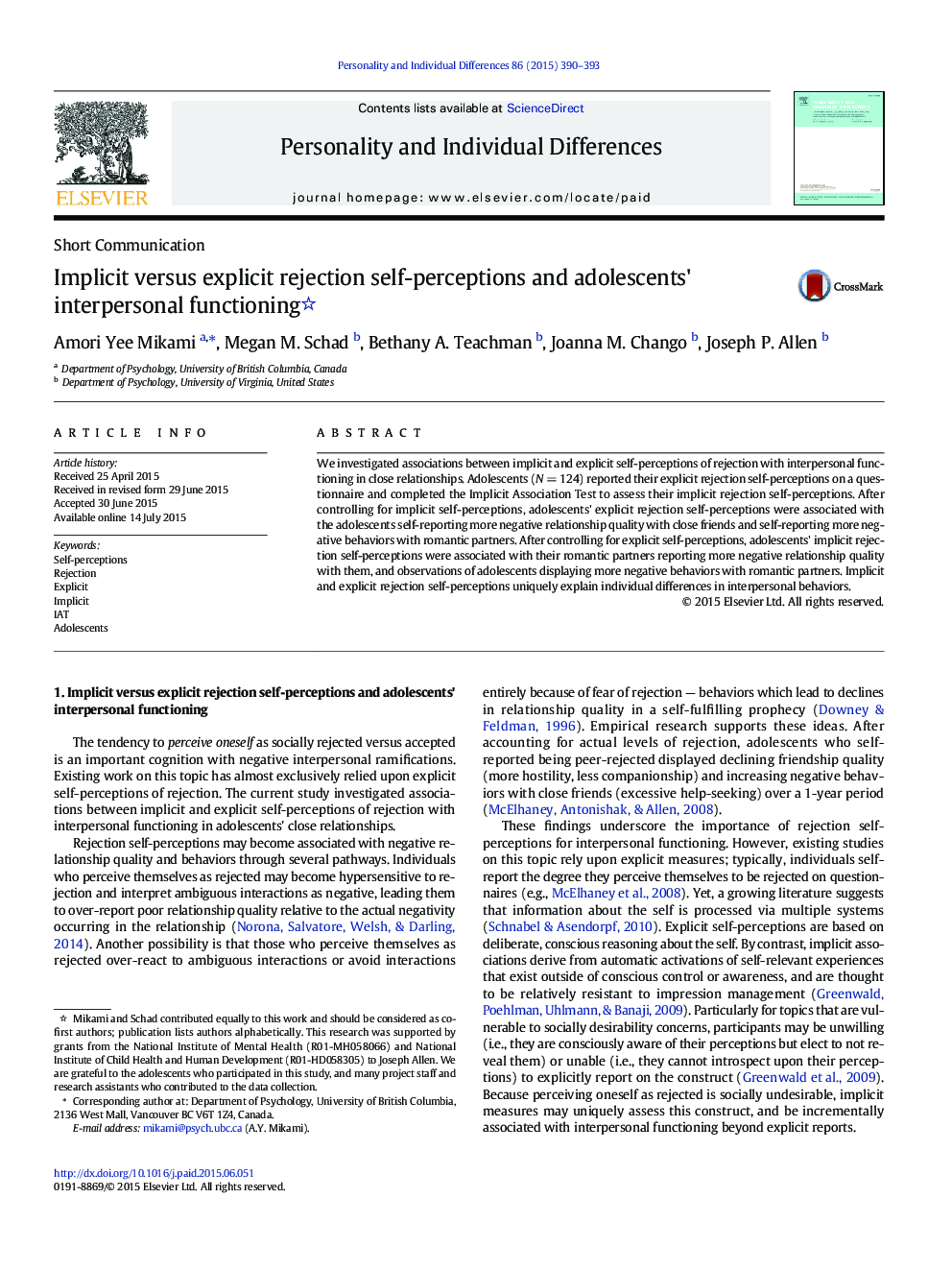| Article ID | Journal | Published Year | Pages | File Type |
|---|---|---|---|---|
| 890029 | Personality and Individual Differences | 2015 | 4 Pages |
•Adolescents' perceptions of themselves as rejected can lead to poor relationships.•Rejection self-perceptions can be measured explicitly and implicitly.•Explicit rejection self-perceptions were associated with self-reported problems.•Implicit rejection self-perceptions were associated with other-reported problems.•Both explicit and implicit self-perceptions are needed to understand functioning.
We investigated associations between implicit and explicit self-perceptions of rejection with interpersonal functioning in close relationships. Adolescents (N = 124) reported their explicit rejection self-perceptions on a questionnaire and completed the Implicit Association Test to assess their implicit rejection self-perceptions. After controlling for implicit self-perceptions, adolescents' explicit rejection self-perceptions were associated with the adolescents self-reporting more negative relationship quality with close friends and self-reporting more negative behaviors with romantic partners. After controlling for explicit self-perceptions, adolescents' implicit rejection self-perceptions were associated with their romantic partners reporting more negative relationship quality with them, and observations of adolescents displaying more negative behaviors with romantic partners. Implicit and explicit rejection self-perceptions uniquely explain individual differences in interpersonal behaviors.
